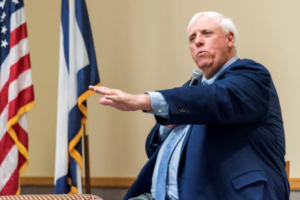Kavanaugh’s Disqualifying Flaw
Yesterday, much of the country was riveted to their televisions, or other devices, watching the testimony of Christine Blasey Ford and Brett Kavanaugh before the Senate Judiciary Committee. I went a number of places last evening and this was all anyone could talk about. The ostensible issue is whether Kavanaugh, President Trump’s Supreme Court nominee, committed a sexual assault on Ford in 1982 as she claims. The larger and more important issue is what kind of person should serve on the Supreme Court.
Unfortunately, the way the inquiry was set up we are really unable to determine whether Kavanaugh did it. The Senate Judiciary Committee is not a court of law. The devices we have honed over centuries for finding the truth, notably compelling witnesses to testify and then cross-examining them, were not used. Ford and Kavanaugh each got an opening statement and then were subject to questions from Senators. Republican Senators ceded their opportunity to question Ford to a prosecutor specially retained for this purpose. Ford answered whatever questions were asked of her and seemed to be genuinely trying to help the process. Kavanaugh was combative, answering the questions from “friendly” interrogators but arguing with Democratic Senators and frequently interrupting them. Committee Chairman Charles Grassley ran the proceeding as a political spectacle not a trial.
Republican Senators were upset that Kavanaugh has been put in this position. They repeatedly questioned the motivation of Ranking Member Diane Feinstein for holding onto Ford’s letter, in which she initially raised the allegation, until after Kavanaugh’s vetting process had nearly gotten to its end. They might have a legitimate point about this, but that point doesn’t go to whether Kavanaugh is actually guilty of sexual assault or whether he is appropriate for the Supreme Court. Instead it simply complains about the partisan behavior that pervades everything these days, of which the Republicans are equally guilty.
To be fair about this, I confess I don’t know whether Kavanaugh did it. Each witness was 100% certain that his or her own story was correct and the other’s was wrong. Ford’s testimony was compelling. She did not say or behave in any way that suggests she is making the story up or that she has a political axe to grind. After all, the letter in which she raised the allegation against Kavanaugh was written at the point when Kavanaugh was one of several on Trump’s list for consideration and before he was actually nominated. She had nothing to do with the manner in which the allegations were brought forward by Feinstein and the Democrats. In fact, she asked for confidentiality and is as much a victim of the circus as Kavanaugh. There are holes in her recollection but she didn’t try to fill them in to make the story better or more complete.
Kavanaugh’s anger and emotion were also genuine, which perhaps suggests that he is telling the truth as he believes it. He repeatedly pointed out that the three other people whom Ford says were present at the party cannot confirm it took place. He presented a calendar from high school in which he listed the places he planned to be and showed how after these events he wrote in who had been present. There is no meeting or party listed of the sort that Ford alleges. He also pointed to a lot of women who would attest to his character, although this kind of evidence is rarely allowed in court because how one behaves in other circumstances is not proof that he acted in the same way in the circumstance in question.
There are a number of other things that could be said for and against the stories of Ford and Kavanaugh. But we are not going to get any other facts or testimony because the Republicans are resisting the call of the Democrats for an FBI investigation of the allegations. They feel this is just a ploy on the part of the Democrats to delay the vote on the nomination until after the mid-term elections in November. Perhaps they can now understand the Democrat’s fury at the refusal of Mitch McConnell to bring forward President Obama’s nominee Merrick Garland until after the 2016 election.
In any event, if the objective is to find the truth then more information rather than less is appropriate. Kavanaugh, who has been a federal judge for twelve years, repeatedly dodged the question of whether he wanted an FBI investigation. Clearly, if such an investigation provided no corroboration for Ford, then Kavanaugh would sail through the nomination vote. Instead, it almost looks like he and the Republicans are afraid of what would be learned if the FBI interviewed Mark Judge and others. So I don’t think the Republicans are interested in the truth so much as getting their nominee across the line. And maybe Democrats really don’t care as much about the truth as preventing this.
Even Chairman Grassley conceded that if Ford’s allegations are true it would be disqualifying for Kavanaugh. Nobody disputed this. Yet after yesterday’s hearing any honest broker would have to say that it is possible they are true – that Kavanaugh actually committed the sexual assault. I think the real question the full Senate will confront is whether we are prepared to put someone onto the Supreme Court for life about whom there is this much doubt. Do we care about the integrity of the Supreme Court or not?
For me there is an easier way out of this quagmire. In my view Kavanaugh disqualified himself yesterday when he forcefully claimed that he is the victim of unjust character assassination by the Democrats on the Judiciary Committee who only want revenge “for the Clintons.” This is a glimpse into the way Kavanaugh views the world and it is not pretty. The Democrats did not concoct the allegations against him. The Democrats were not the ones seated in front of the Committee telling a believable story of sexual abuse by laughing frat boys. Yet Kavanaugh filters this as something insidiously partisan. Keep in mind that this is a man who evaluates disputes for a living, but when the dispute involves him he sees nothing but a nefarious plot by his political foes. His mode of thinking and his combative way of presenting it speak volumes about how fair and even handed he could be on the Supreme Court. You can bet that as a Justice he would scorch Democrats and their concerns as his own revenge. The Senate proceeding was not perfect as a truth finding process, but the stress it created exposed Kavanaugh’s disqualifying flaw.


